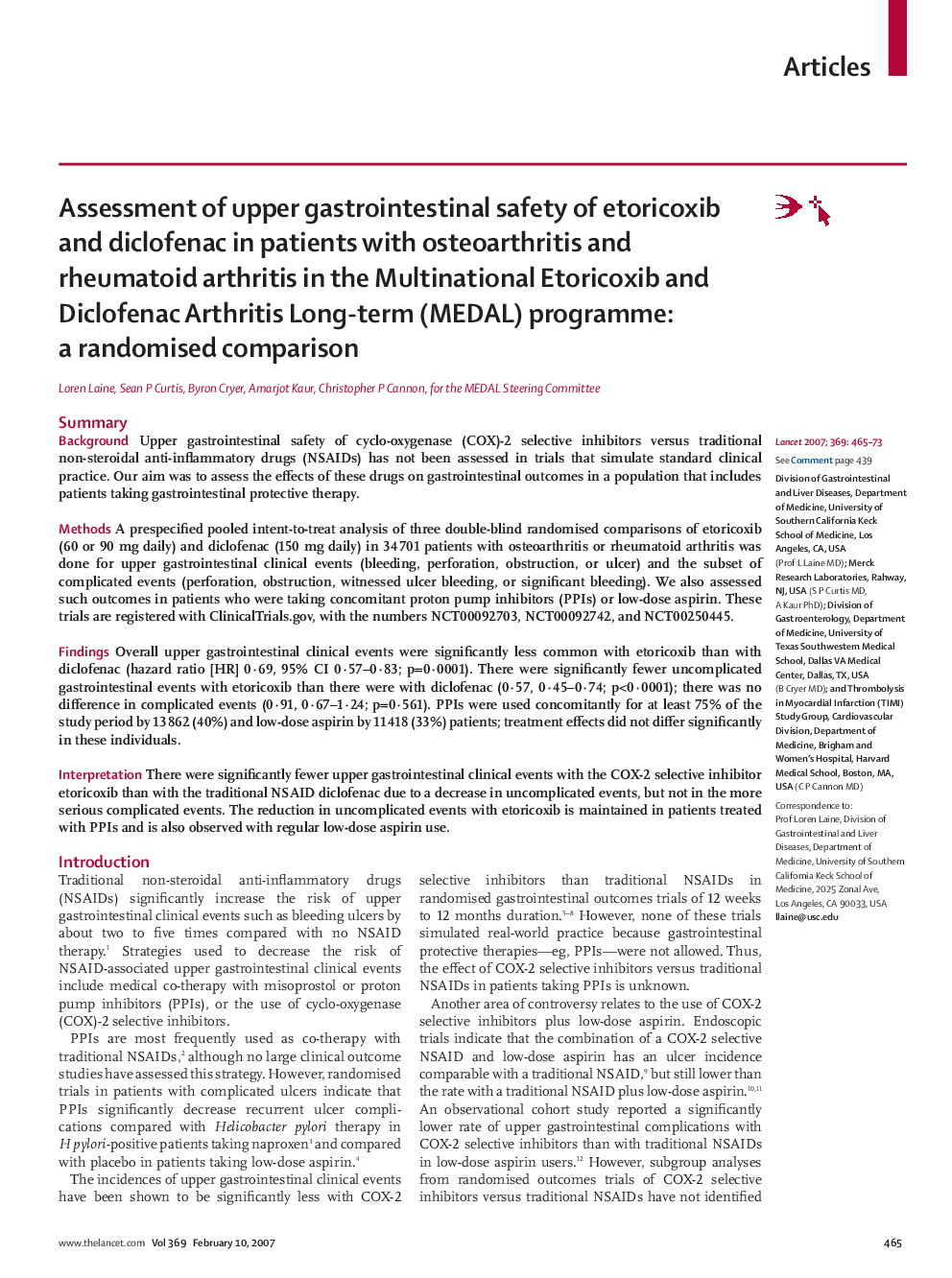| کد مقاله | کد نشریه | سال انتشار | مقاله انگلیسی | نسخه تمام متن |
|---|---|---|---|---|
| 3498585 | 1234449 | 2007 | 9 صفحه PDF | دانلود رایگان |

SummaryBackgroundUpper gastrointestinal safety of cyclo-oxygenase (COX)-2 selective inhibitors versus traditional non-steroidal anti-inflammatory drugs (NSAIDs) has not been assessed in trials that simulate standard clinical practice. Our aim was to assess the effects of these drugs on gastrointestinal outcomes in a population that includes patients taking gastrointestinal protective therapy.MethodsA prespecified pooled intent-to-treat analysis of three double-blind randomised comparisons of etoricoxib (60 or 90 mg daily) and diclofenac (150 mg daily) in 34 701 patients with osteoarthritis or rheumatoid arthritis was done for upper gastrointestinal clinical events (bleeding, perforation, obstruction, or ulcer) and the subset of complicated events (perforation, obstruction, witnessed ulcer bleeding, or significant bleeding). We also assessed such outcomes in patients who were taking concomitant proton pump inhibitors (PPIs) or low-dose aspirin. These trials are registered with ClinicalTrials.gov, with the numbers NCT00092703, NCT00092742, and NCT00250445.FindingsOverall upper gastrointestinal clinical events were significantly less common with etoricoxib than with diclofenac (hazard ratio [HR] 0·69, 95% CI 0·57–0·83; p=0·0001). There were significantly fewer uncomplicated gastrointestinal events with etoricoxib than there were with diclofenac (0·57, 0·45–0·74; p<0·0001); there was no difference in complicated events (0·91, 0·67–1·24; p=0·561). PPIs were used concomitantly for at least 75% of the study period by 13 862 (40%) and low-dose aspirin by 11 418 (33%) patients; treatment effects did not differ significantly in these individuals.InterpretationThere were significantly fewer upper gastrointestinal clinical events with the COX-2 selective inhibitor etoricoxib than with the traditional NSAID diclofenac due to a decrease in uncomplicated events, but not in the more serious complicated events. The reduction in uncomplicated events with etoricoxib is maintained in patients treated with PPIs and is also observed with regular low-dose aspirin use.
Journal: - Volume 369, Issue 9560, 10–16 February 2007, Pages 465–473